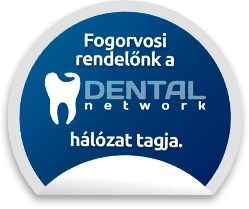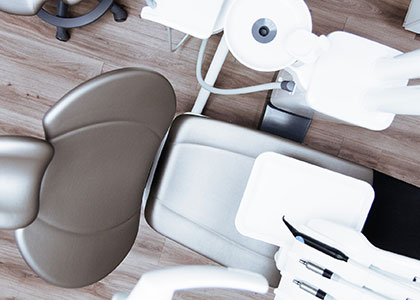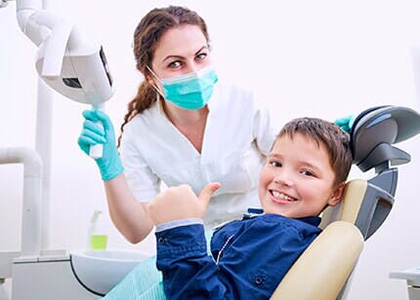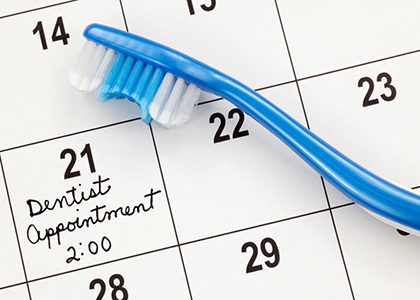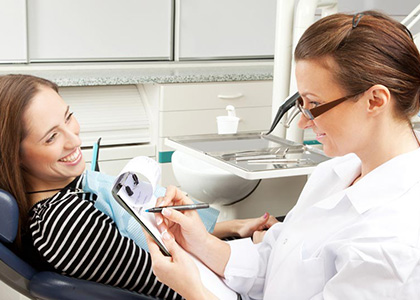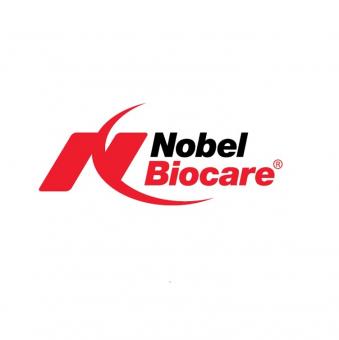Transparent Blisters in the Mouth
Transparent blisters in the mouth are a common issue that many people may experience. These small, fluid-filled blisters can develop for various reasons and, while generally harmless, they can cause discomfort, especially when they become irritated during speaking or eating. The appearance of transparent blisters can indicate minor injuries or irritations, but they may also signal more serious health problems. It is important to understand what causes these blisters and how they can be effectively treated.
What Causes Transparent Blisters in the Mouth?
The formation of transparent blisters in the mouth can be attributed to several causes, some of which are harmless while others may indicate more serious issues. Below we detail the most common causes:
Mechanical Injury
The most frequent cause of transparent blisters is injury to the inner surfaces of the mouth. This injury often occurs during daily activities, such as accidentally biting the inside of your cheek or lip. Consuming overly hot foods or beverages can also cause burn injuries, leading to the appearance of transparent blisters in the mouth. Mechanical irritation from dental appliances, such as braces or poorly fitting dentures, can rub against the mouth's mucous membranes, causing small blisters to form.
Herpes
Infection with the herpes simplex virus (HSV) is also a common cause of transparent blisters. HSV can cause painful, clear or yellowish blisters on the lips or inside the mouth. These blisters result from viral infection and usually flare up due to stress, weakened immune systems, or excessive sun exposure. Herpes-associated blisters are generally uncomfortable and painful but heal on their own within a few days or weeks.
Canker Sores
Canker sores, or mouth ulcers, are common oral lesions that are usually white with a red inflammatory border. However, canker sores can initially appear as transparent blisters before fully developing. The exact cause of canker sores is not always known, but stress, nutritional deficiencies, hormonal changes, or certain foods can trigger them. Canker sores are painful, especially during eating or speaking, but they typically resolve on their own within a few days or weeks.
Allergic Reaction
Allergic reactions to certain foods, medications, or toothpastes can trigger transparent blisters in the mouth. These reactions can irritate the mucous membranes of the mouth, leading to inflammation and blister formation. In cases of allergic reactions, removing or avoiding the allergen is crucial for relieving symptoms and preventing further blister formation.
Mucocele
A mucocele is a benign condition that occurs when a salivary gland is blocked, and saliva accumulates, creating a transparent blister in the mouth. Mucoceles often appear on the inner surface of the lower lip or the floor of the mouth and are typically painless. While these blisters generally do not cause serious health issues, if they become bothersome or frequently recur, medical intervention, such as surgical removal, may be necessary.
Other Causes
Other possible causes of transparent blisters include certain autoimmune diseases, such as pemphigus vulgaris, which is rare but can lead to severe oral blistering. Additionally, chronic stress, smoking, or side effects from certain medications can also contribute to blister formation.
Symptoms of Transparent Blisters in the Mouth
While the appearance of transparent blisters in the mouth generally does not accompany severe symptoms, they can cause discomfort that may affect daily activities such as eating, drinking, or speaking. Below, we elaborate on the most common symptoms:
Pain or Sensitivity
One of the most common symptoms associated with transparent blisters is pain or sensitivity around the blister. This is particularly true when the blister is irritated, such as during eating, drinking, or speaking. Sensitivity can intensify if the blister comes into contact with rough foods, hot beverages, or if it rubs against the lips or inner cheeks. The degree of pain can vary, with some people experiencing only mild discomfort, while for others, the pain can significantly affect daily activities.
Swelling
Swelling often occurs around the blistered area, contributing to discomfort. The extent of swelling can vary depending on the size and location of the blister. For instance, if the blister is located on the inner side of the lip, the swelling might cause the lips to protrude slightly, which can be aesthetically displeasing and uncomfortable. Typically, swelling is a natural accompaniment to blister formation and will gradually recede as the blister begins to heal.
Irritation
Transparent blisters are particularly susceptible to irritation from certain foods and drinks, which can exacerbate the irritation. Consuming spicy, acidic, or very salty foods often increases irritation around the blisters, as these substances can chemically interact with the mucous membrane. This irritation can cause a burning, stinging sensation, which can be particularly unpleasant during eating or drinking. Due to this irritation, many people avoid particularly flavored or textured foods until the blisters fully heal.
Sensitivity to Foods and Beverages
The presence of blisters in the mouth can make the mucous membrane more sensitive to certain foods and beverages. For example, hot drinks, such as coffee or tea, can further irritate the blisters, causing increased pain and discomfort. Similarly, crunchy or hard foods, like chips or crusty bread, can mechanically irritate the blisters, making eating difficult and painful.
Impeded Speech and Eating
The location of transparent blisters in the mouth can affect speech and eating. If a blister is located on the inner side of the lip or on the tongue, forming words and chewing food can be painful. This is especially true if the blisters are continuously irritated by movement, which can complicate normal speech or thorough chewing of food.
How to Treat Transparent Blisters in the Mouth?
The treatment of transparent blisters in the mouth largely depends on the causes that led to their formation. However, several general methods and treatments are available that can help alleviate symptoms, promote healing, and prevent further irritation. Below, we detail these treatment options:
Home Care
Home care is one of the first steps you can take to treat transparent blisters in the mouth. The goal of home remedies is to reduce the risk of infection, relieve pain, and accelerate the healing of blisters.
Saltwater Rinses: Dissolve a teaspoon of salt in a glass of warm water and rinse your mouth with it several times a day. Saltwater helps to disinfect the oral cavity, reduce inflammation, and promote the healing of blisters.
Antiseptic Mouthwash: Antiseptic mouthwashes, such as those containing chlorhexidine, can help prevent bacterial infections and reduce inflammation. These mouthwashes should be used following a doctor’s recommendation.
Ice Cube or Cold Compress: Sucking on an ice cube or applying a cold compress to the blister area can help relieve pain and swelling. The cold temperature reduces inflammation and can have a numbing effect.
Avoid Irritating Foods and Beverages
Avoiding irritating foods and drinks is an important step in promoting the healing of blisters. It is advisable to avoid the following foods and habits:
Spicy Foods: Spicy foods, such as hot peppers, can irritate the mucous membranes of the mouth and exacerbate the pain of blisters.
Acidic Foods and Drinks: Citrus fruits, tomatoes, vinegar, and acidic drinks, such as orange juice, can irritate and slow the healing of blisters.
Very Hot Foods and Drinks: Consuming overly hot foods and drinks can cause burn injuries, which can exacerbate blisters and complicate healing.
Alcohol and Smoking: Alcohol and smoking can have an irritating effect in the mouth and worsen blisters, so their use should also be avoided.
Medication
If the transparent blisters are painful or do not heal properly, the doctor may recommend medication. This is especially true if the blisters result from a viral infection, such as herpes.
Topical Anesthetics: The doctor may recommend a topical anesthetic, which should be applied directly to the blister. These agents, such as gels containing lidocaine, temporarily numb the area, reducing pain and discomfort.
Pain Relievers: If the pain is more severe, oral pain relievers, such as ibuprofen or acetaminophen, can help alleviate symptoms.
Antiviral Medications: If blisters are caused by herpes, the doctor may prescribe antiviral medications, such as acyclovir, which help treat the viral infection and relieve symptoms.
Dental Treatment
If dental issues cause the blisters, such as irritation from braces, dentures, or other dental appliances, dental intervention may be necessary.
Adjustment of Braces or Dentures: If braces or dentures are causing the blisters, the dentist can adjust the device to reduce irritation and promote healing.
Dental Advice: The dentist can advise on maintaining proper oral hygiene and preventing blisters, especially if you are prone to these problems. This may include the use of special toothpastes or mouthwashes that do not irritate the mucous membrane.
Other Treatment Options
In some cases, especially if blisters frequently recur or cause severe pain, further medical interventions may be necessary.
Medical Consultation: If blisters do not heal, or if they recur frequently, it is advisable to consult a doctor. The doctor can perform further tests to rule out more serious conditions, such as autoimmune diseases or cancerous lesions. Identifying these causes allows for the development of an appropriate treatment plan that helps prevent the recurrence of blisters. Additionally, the doctor can advise on how to minimize the impact of triggering factors.
Surgical Removal: In rare cases, such as when a blocked salivary gland causes a blister (mucocele), surgical removal may be necessary to resolve the issue.
When to Consult a Doctor?
Although transparent blisters in the mouth are often harmless and resolve on their own, there are instances when medical consultation is necessary. Below we elaborate on situations that warrant a visit to the doctor:
If Blisters Do Not Heal Within a Few Days
Transparent blisters in the mouth typically heal on their own within a few days to a week. However, if the blisters show no signs of improvement after several days, or if they worsen over time, it is advisable to consult a doctor. This is particularly important as persistent blisters may indicate more serious health issues such as chronic infections, salivary gland blockage, or even autoimmune diseases. A doctor can examine the blisters and, if necessary, conduct further tests to determine the underlying cause and appropriate treatment.
If Blisters Recur Frequently
If blisters frequently recur, this could be a clear sign of an underlying problem that requires treatment. Common causes of recurrent blisters include chronic stress, weakened immune system, allergic reactions, or hormonal changes. A doctor can help identify these causes and develop an appropriate treatment plan to prevent the blisters from reoccurring. Additionally, the doctor can provide advice on how to minimize the impact of the triggering factors.
If Blisters Are Accompanied by Severe Pain, Fever, or General Malaise
While transparent blisters typically cause only mild discomfort, if symptoms worsen and significant pain, fever, or general malaise occur, it is crucial to seek immediate medical attention. These symptoms might indicate an infection behind the blisters, such as herpes or bacterial infection, requiring medical treatment. Fever, in particular, is a concerning symptom as it may suggest that the infection is spreading within the body, posing a greater health risk.
General malaise, such as fatigue, headaches, or muscle pain, may also indicate that the body is fighting an infection or illness. In these cases, treatment prescribed by a doctor, such as antiviral drugs, antibiotics, or pain relievers, can help alleviate symptoms and speed up recovery.
If Blisters Have an Unusual Appearance or Do Not Respond to Usual Treatments
If blisters are unusually large, shaped, or colored, or if they do not respond to usual home treatments, medical consultation is also justified. This is important because certain oral lesions, such as early signs of oral cancer, may present with similar symptoms. While these cases are rare, early detection and treatment significantly increase the chances of successful recovery.
Effective Treatment for Transparent Blisters at Fehérvári Dental
Do not let transparent blisters in your mouth cause discomfort in your daily life! The experienced team at Fehérvári Dental can help you quickly and effectively manage the problem. Turn to us with confidence to enjoy a pain-free smile and healthy oral hygiene again.
Book an appointment now!
